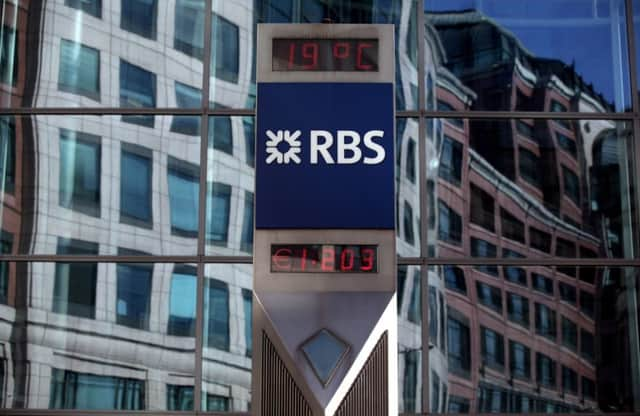Leaders: Time for bankers to play by the rules


Scandal after scandal has emerged and where we once might have thought of the bank manager as a conservative, cautious figure, worthy of respect and perhaps a little fear, now he or she is part of an industry that, bluntly, few of us trust at all.
So the Bank of England’s rewriting of the City rulebook is to be welcomed.
Advertisement
Hide AdAdvertisement
Hide AdNew measures announced yesterday by the Prudential Regulation Authority include tough new restrictions on bankers’ bonuses and strict penalties – including prison sentences – for executives found to have erred.
The PRA’s proposals will undergo a period of consultation before new industry regulation is set in stone in the autumn.
There is, unsurprisingly, concern among bankers about proposals which will see London become one of the most closely regulated financial centres in the world.
The British Bankers’ Association says new rules on pay and bonuses would put the UK at a competitive disadvantage. The association claims that, with London bankers already paid less than their counterparts in New York, Singapore, or Hong Kong, further constraints could have an impact on jobs and the tax paid by high-earners in the UK.
We suspect public sympathy for bankers’ complaints will be in short supply.
The state regulates all sorts of industries whose employees play important parts in our lives.
We would not trust our health concerns to a GP without a licence to practise nor engage an unqualified solicitor to handle matters of legal importance.
Yet, for too long, we have been expected to trust our money to those in an industry that spiralled out of control as it built the boom which inevitably led to bust.
Advertisement
Hide AdAdvertisement
Hide AdNot only should these new regulations be imposed but the sanctions they suggest should be fully enacted. That means, yes, hefty bonuses should be able to be clawed back at any time for seven years after they’ve been paid and, yes, prison should be a real prospect for those bankers found to have chosen not to play by the rules.
The impact of the financial crash continues to be felt – in wages that haven’t kept up with inflation, in property prices that have plummeted, and in public services that have been pared to the bone as budgets are slashed.
Bankers may complain loudly but in doing so they misread public opinion which says their industry has a way to go before it’s trusted again.
Banking still provides lucrative careers for those who reach the top. New regulations will not stop that. But they will provide some protection for savers and investors – and help ensure the industry’s rogues are weeded out.
Virus vigilance to be welcomed
AN EMERGENCY Cobra Cabinet committee meeting to discuss a virus which has so far affected no United Kingdom citizens might seem like an overreaction.
Ebola – deadly as it is – has not reached our shores. Its victims, so far, have been thousands of miles away in West Africa.
But the new Foreign Secretary, Philip Hammond, is right to take the dangers of this devastating virus seriously.
Ebola has killed more than 670 people in West Africa. In such a globally connected world, it would be complacent to think that the virus – which attacks the central nervous system – can simply be contained elsewhere.
Advertisement
Hide AdAdvertisement
Hide AdEbola kills as many as 90 per cent of those who contract it and, although our health services may be considerably more advanced than those in West Africa, those affected face a life-or-death battle, wherever they may be.
UK Health Secretary Jeremy Hunt says infection controls make it unlikely that an outbreak could spread quickly on British soil. But, despite this confidence, tackling the threat posed by the virus remains a focus of the government.
Health services across the UK must be fully prepared for the possibility of someone visiting or returning home developing symptoms of Ebola. The consequences of an inadequate response to such a deadly, swiftly-transmitted virus are simply unthinkable.
The government’s action at this early stage is neither premature nor disproportionate.
Ebola might seem a problem that is a world away from ours but in fact it is just a few hours away by air.
We cannot be too vigilant against the threat the virus poses.